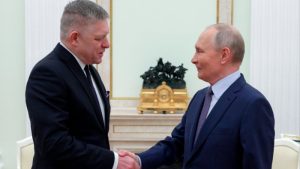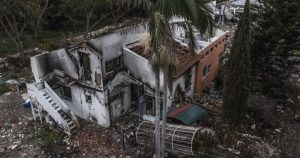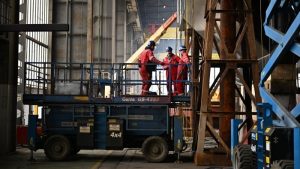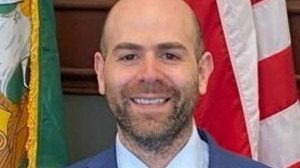South Korea’s interim leader faces daunting task
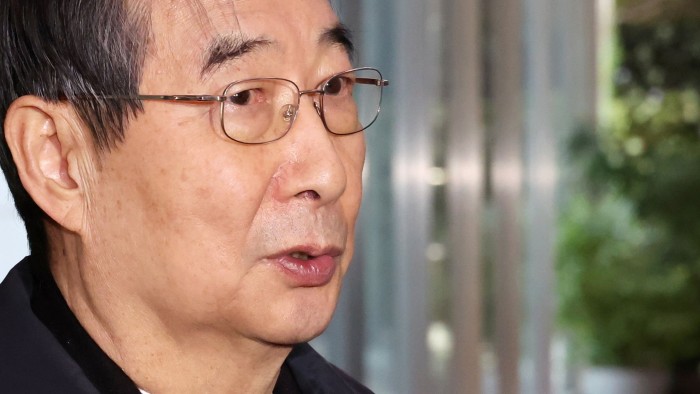
Unlock the Editor’s Digest for free
Roula Khalaf, Editor of the FT, selects her favourite stories in this weekly newsletter.
South Korea’s acting president Han Duck-soo promised to “make sure there will be no vacuum in state affairs” as he sought to reassure investors and foreign allies just hours after the impeachment of President Yoon Suk Yeol on Saturday.
But the prime minister, a Yoon appointee and career technocrat, faces a series of formidable challenges as he seeks to steer Asia’s fourth-largest economy through arguably its worst political crisis since its transition to democracy in the late 1980s.
They include a North Korea emboldened by progress in its nuclear weapons programme and its blossoming relations with Russia, as well as the return of Donald Trump to the White House — all at a time of faltering economic growth and ongoing political turmoil at home.
“Han is in a very precarious position,” said John Lee, an analyst at Seoul-based information service Korea Pro. “He has constitutional authority but no political authority, and he seems painfully aware of this.”
Han has assumed presidential authority on an interim basis while South Korea’s Constitutional Court considers whether to approve Yoon’s removal as head of state. The president was impeached by the National Assembly following his failed attempt this month to impose martial law.
After assuming Yoon’s responsibilities on Saturday evening, Han pledged there would be “no gap in the administration” and moved quickly to reassure foreign allies and markets.
On Sunday morning, he held a phone call with President Joe Biden in which he said diplomacy would be carried out “without disruption”, while South Korea’s central bank said it would “utilise all available policy instruments, in conjunction with the government, to respond to and avert an escalation of volatility” in markets.
Han’s mandate as acting president could last up to eight months or even longer. South Korea’s Constitutional Court is supposed to deliver its ruling on Yoon’s impeachment within six months of Saturday’s vote, but this timeline is not binding. If the court approves Yoon’s removal from office, presidential elections need to be held within 60 days.
Han, a long-serving trade official with a Harvard doctorate in economics, has been trade minister and finance minister, as well as ambassador to the US and the OECD. He last served as prime minister between 2007 and 2008 under leftwing president Roh Moo-hyun.
When Yoon announced his appointment of Han as prime minister in 2022, he noted that Han was “unrelated to political factions”. But observers said that without his own political base, leftwing lawmakers who hold a majority in the legislature could fight any attempts by Han to continue to implement Yoon’s political programme.
Han also remains in legal jeopardy after the opposition called for an investigation into his role in Yoon’s martial law gambit.
Lee Jae-myung, leader of the main opposition Democratic Party of Korea (DPK), said on Sunday that his party would not pursue Han’s impeachment “for now”, but called on the acting president to remain politically “neutral” while exercising his powers.
If Han chooses not to implement Yoon’s programme, however, he is likely to receive a fierce reaction from already embittered conservatives. Following the impeachment vote on Saturday, an unrepentant Yoon described his suspension of powers as a “temporary pause” and appealed to government officials to resist leftwing attempts to impose their own programme on the caretaker administration.
Lee of Korea Pro said Han’s vulnerability to investigation over the martial law episode meant opposition parties were likely to “try and see just how far they can push him because they have a lot of leverage over him”.
In particular, they have objected to Yoon’s pro-US and pro-Japan foreign policy orientation, even citing it as a reason to impeach him in their first, ultimately unsuccessful, motion last weekend.
That stance is likely to complicate Han’s efforts to deal with Trump, who has vowed to impose tariffs on US trading partners. During his first presidency, Trump also threatened to pull US troops stationed in South Korea unless Seoul made a greater financial contribution towards their presence.
Han must also exert his authority over South Korea’s armed forces and national security apparatus at a time when the army is in turmoil over the alleged role of high-ranking officers in Yoon’s martial law attempt.
But the greatest challenge for Han is likely to be remaining above the fray amid high tensions between South Korea’s warring political tribes.
John Lee pointed out that Han might be pressured to approve opposition nominations to the Constitutional Court at a time when it is still deciding Yoon’s — and potentially his own — fate.
Observers also note that DPK leader Lee Jae-myung, the present frontrunner to replace Yoon in the event of an early presidential election, is due to stand trial next year on charges relating to the alleged channelling of funds to North Korea.
“If Lee Jae-myung is convicted and barred from standing for office, Han is likely to bear the brunt of the backlash,” said John Lee.
He added that following the defeat of Yoon’s People Power party in parliamentary elections earlier this year, Han had offered his resignation, which Yoon refused. “If I was Han right now, I would be wishing that Yoon had accepted my resignation and I could be free of all this.”
#South #Koreas #interim #leader #faces #daunting #task
